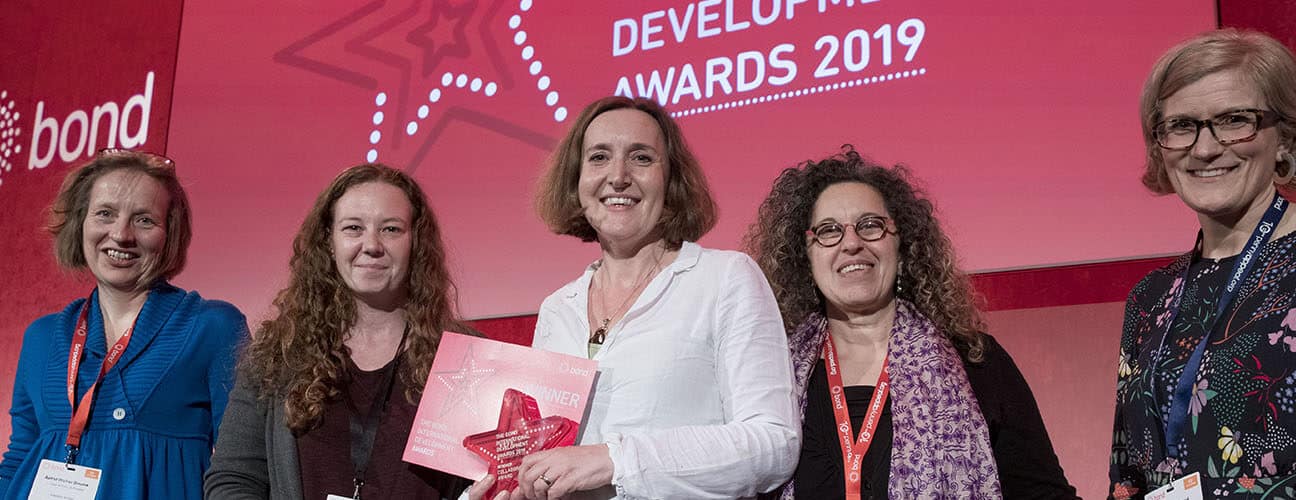Bond Collaboration Award – and the winner is. . .
The Collaboration Award recognises effective relationships and collaborations within and across sectors and disciplines to tackle difficult issues.
Congratulations to Global Initiative to End All Corporal Punishment of Children for winning this prestigious award.
Below, you can see the shortlist and longlist of nominations. Click on the organisation to see what project they have submitted for this award.
Don’t forget to join in the conversation on social media using the #BondAwards tag.
Winner – Global Initiative to End All Corporal Punishment of Children
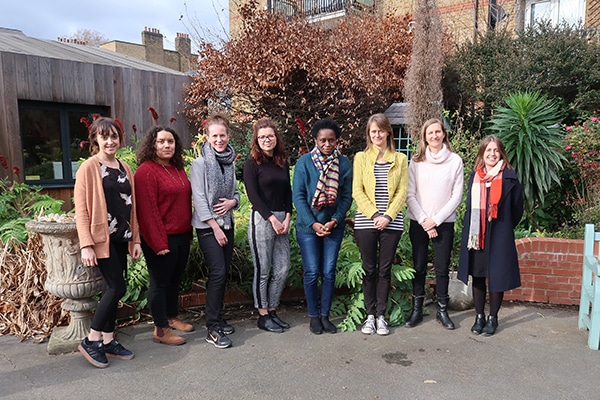
Winning this award means so much to all of us at the Global Initiative, as collaboration is one of our four core values. As a small organisation we truly value each other and the partnerships we have built around the world. We work for a world where every child can grow up free from violence, and feel safe in their homes, schools and communities. Through this project and many others, we have seen that by reaching out and connecting with diverse partners across communities and countries, we can achieve real progress that makes a difference in the everyday lives of millions of children, parents and families.
Anna Henry, Director
A two-year programme of national multi-sector collaboration that supported partners in government, parliaments and national and international civil society, spanning seven countries to create a movement of positive change for children – it culminated in five countries passing legislation to fully prohibit corporal punishment and three others making substantial progress.
Project objectives
- To utilise the organisation’s global position as experts on the child’s right to protection from violence to convene multi-sector learning events at a global level and bring civil society and policy makers together to work collaboratively in order to fully prohibit corporal punishment of children in line with the UN Convention on Children’s Rights.
- To provide hands on support at the national level to support collaboration between policy makers and civil society to achieve real change, in the form of passing legislation to outlaw violent punishment of children.
- To support national campaigns in seven countries, which has now led to legislation in five of the countries and significant progress in the three others.
How have people benefited?
Because the objective is to change the structures and systems that support the acceptance of the use of violence against children, it is difficult to quantify the numbers of beneficiaries – taking a collaborative approach, they have actively engaged over 30 partners across the eight countries described in this project.
In terms of the children that will benefit from the change in legislation in the five countries that have now fully prohibited corporal punishment as a consequence of this project, the total child population across these countries is 36,000,000. Legislation to protect children from violence is a systemic, preventative intervention and in fact, should prevent violence for millions of children in future generations
What examples are there of impact?
- This project has successfully seen legislation passed in five of the eight countries that have been participants in the global events and have worked in partnership at a national level – France, Kosovo, Georgia, South Africa and Scotland have now banned corporal punishment in 2019.
- Over 2017-19 they supported key international stakeholders at a national level across these eight countries, including Save the Children and UNICEF.
- The Global Initiative has worked in partnership to highlight the issue of corporal punishment at the recent High Level Political Forum at the UN in July 2019, on a panel alongside the governments of Mexico, as well as Qatar and the UK, the World Bank, young people and other NGOs.
Why was the collaboration successful?
Legislative change could not have been achieved without the collaboration between Global Initiative as a global institution and the work of the national campaigns. The partnership with the Swedish Institute and Save the Children Sweden to convene global learning retreats has maximised the impact of this work over 2017-19, engaging many national partners and helping develop capacity in country, and also to show that efforts to prevent violence against children are global and shared across both high and low income countries.
They have taken a fully collaborative approach. Global Initiative has provided a global newsletter and four regional newsletters and toolkits, guidance and background material to support national campaigns. As showcased in this project, they provide face to face workshops on law reform, and are now converting this to a “train the trainer” programme, to capacity build international and national partners remotely to increase reach and impact, without adding to their carbon footprint.
Collaboration Award shortlist
BBC Media Action – Common Service for Community Engagement and Accountability in Cox’s Bazar
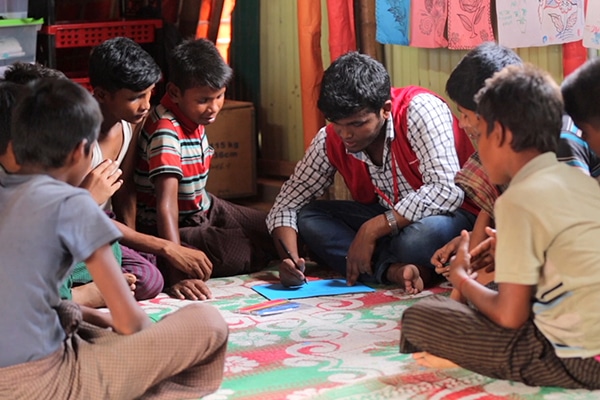
This unique collaboration is a first-of-its-kind model for better informing and coordinating humanitarian efforts. The project works to understand perceptions and concerns of Rohingya people and host communities, dispelling rumours and providing trusted information, and gives people a means of communicating with and giving feedback more effectively to aid agencies.
Project objectives
- To provide coordinated, timely and responsive two-way community engagement with displaced people in their own language, including critical life-saving and life-enhancing actions that individuals, families and communities can take.
- To create systematic accountability for aid providers and authorities by supporting better collection of feedback directly from communities, and collectively analysing community concerns collated from different actors, to inform decision-making processes at the sector and country levels.
How have people benefited?
It is challenging to measure the community-level reach of the project, which has focused on supporting capacity for agencies and providing common tools and services which are used across the response. However, a multi-sector needs assessment survey in June 2019 found that more than 80% of the almost 1 million refugees living in Cox’s Bazar had received information about how to prepare for cyclones – an area in which the Common Service project was instrumental in supporting communication efforts.
More than 80 agencies have been supported with training, capacity strengthening and expert consultancy directly by the project, with 2,260 individual humanitarian staff and volunteers having received training up to September 2019 (59% male / 41% female). Over 22,000 unique users have accessed the Shongjog website designed to help humanitarians access common communication tools online; and 500 people subscribe to the project’s regular humanitarian feedback bulletins, which provides independent analysis of the feedback and complaints received from refugees and host communities, to aid with humanitarian decision-making.
What examples are there of impact?
- This project provided families with trusted information to help them make better decisions about their daily lives.
- This project helped more people communicate with aid providers, although more work is required to strengthen these connections.
- This project helped Rohingya people give feedback or make complaints about aid providers, via listening groups and information centres supported by the project, through the project’s team of community correspondents or using a wide range of face-to-face feedback mechanisms operated by agencies supported by the project.
Why was this collaboration successful?
This collaboration has successfully connected four communication-for-development agencies with specific and complementary expertise – in interpretation and translation, in dispelling misinformation and disinformation, in research skills and in the creation of compelling content – in an environment where the language of displaced people bore little resemblance to that of the host community. This work was applied in a real-time learning loop for aid agencies and serves as a model for future emergencies.
Activities included community engagement training and mentoring for humanitarian staff and volunteers, language and translation support and training, a “What Matters” bulletin for aid agencies providing independent analysis of community feedback and identifying issues in the camps, a “Flying News” bulletin to help humanitarian staff address rumours, and a wide range of Rohingya-language audio, video and pictorial content addressing critical information needs and contemporary social issues such as protection against sexual exploitation and abuse, and gender-based violence.
Chance for Childhood – Meeting the Global Disability Summit Commitments: Childhood Disability Screening Tools in Rwanda
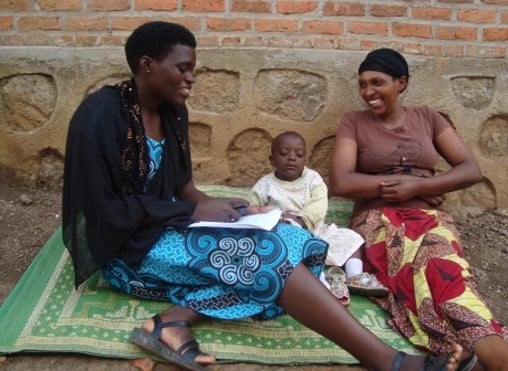
Through the power of strategic collaboration, and in direct response to the GDS Commitments, this project developed the first-ever standardised disability screening tool in Rwanda to identify children with disabilities and those at risk of developmental delays, which informs decision-makers on service gaps and promotes early detection and preventive interventions.
Project objectives
- For all service providers, non-governmental organisations, government agencies and frontline workers from various sectors in Rwanda to design evidence-based inclusive programmes leading to inclusive development.
- To ensure that enumerators and officials in Rwanda are familiar with Washington Group Question sets and are able to collect disaggregated data on children aged 0 – 18 years old.
- To challenge negative attitudes towards people with disabilities through fostering of dialogues and sensitisation at both community and national levels.
How have people benefited?
To date, this project has benefited a total of 3,788 individuals. This includes 3,650 children (1,776 girls; 1,874 boys) who have been identified to have a disability and/or developmental delay and some now receiving inclusive early childhood development services; 60 community enumerators (39 female; 21 male), 65 Community Health Workers (49 female; 16 male), 10 ECD caregivers (10 female); 2 ECD head teachers (2 male) and 1 female Sector Education Officer in Rwaza sector who have all been trained on how to administer the screening tools.
Prior to this project, frontline workers did not know how to identify children with disabilities and those at risk of developmental delays. Additionally, they did not how to support identified children. Following their training, the Community Health Workers have successfully identified children with disabilities and have subsequently sensitised parents on how to provide inclusive home-based ECD services to their children. Trained ECD caregivers and head teachers reported that they are now better equipped to provide inclusive ECD services and as a result the centre now supports 11 children with disabilities compared to only one child with physical impairment prior to the project.
What examples are there of impact?
- This project directly supported the Government of Rwanda’s commitment made at the 2018 Global Disability Summit to ensure more inclusive data disaggregation.
- Increased capacity of frontline workers to identify and deliver inclusive services for children with disabilities and their families.
- Effectively developed a standardised approach of disaggregated data collection that can be rolled out and analysed at the national level to inform inclusive programming across various sectors.
Why was this collaboration successful?
The collaboration between an INGO (CfC), leading multilateral agency (UNICEF) and the Government of Rwanda (Ministry of Gender and Family Promotion) has been hugely successful because it convened key stakeholders from different sectors to work together to fulfil the government’s commitment in using the Washington Group Questions in national census/surveys. This collaboration also facilitated each party to capitalise on their strengths to bring about impactful change.
Given UNICEF’s close relationship with the government, the institution acted as an intermediary coordinating and emphasising the significance on identifying children with developmental delays and/or disabilities. UNICEF validated CfC as one of the few specialist organisations delivering inclusive ECD in Rwanda. Collaboration also occurred outside of the three key stakeholders with consultations with actors from health, social services, and education sectors at national and district levels. Specialists from national and international NGOs as well as DPOs also participated in numerous meetings and dissemination workshops.
Collaboration Award longlist
All We Can – Protection of Wof Washa Forest
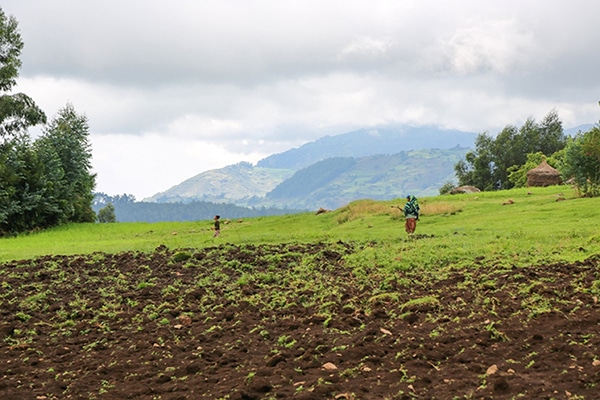
Wof Washa is an area of outstanding natural beauty and home to hundreds of communities who live both in and the surrounding area of the forest, dependent on it for their livelihoods, food security and shelter. All We Can, in collaboration with SUNARMA, has been working with these communities to protect the forest through provision of alternative livelihoods, sustainable use, and re-forestation of lost forest.
BRAC UK – Lighting up lives
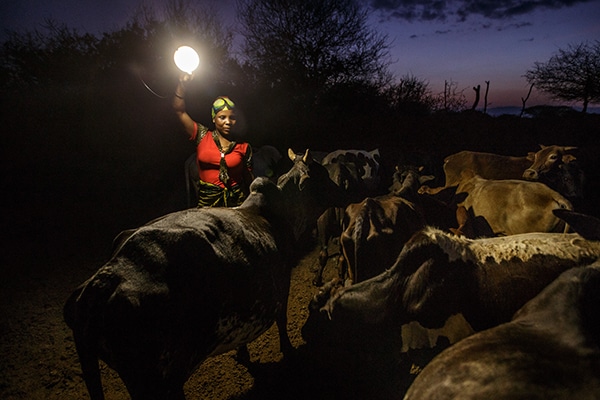
BRAC, one of the world’s largest NGOs, and Signify Foundation (formerly known as Philips Lighting Foundation) are working together to bring sustainable lighting and create livelihood opportunities in hard to reach places like Refugee camps in Bangladesh, and rural Nepal and Tanzania.
British Council – Teaching for All: Mainstreaming Inclusive Education in South Africa
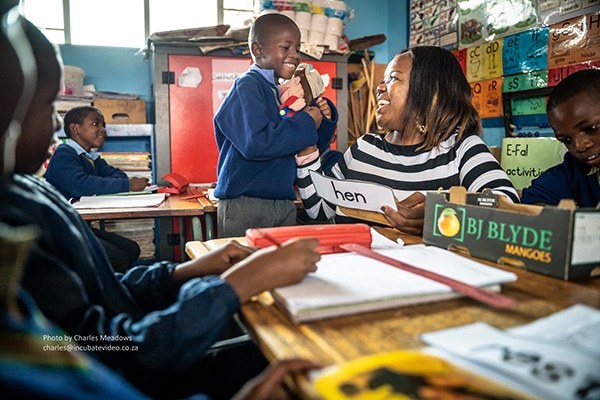
Teaching for All equips the next generation of South African teachers with the tools, skills and attitudes they need to engage all learners and remove barriers to the provision of inclusive and equitable education. The programme has united academia, civil society and government to achieve this goal through collaboration.
CARE International UK – HALOW+ (Health Access and Linkage Opportunities for Workers Plus)
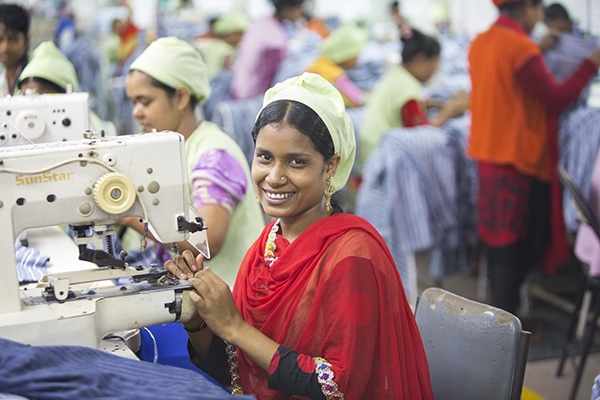
The innovative HALOW+ programme empowers and dignifies ready-made garment factory workers, especially women, in Bangladesh by improving health access and knowledge. Factory workers are educated and supported within factories where they work, as well as in the wider community on nutrition and SRHR, leading to improved health, dignity and productivity.
Danish Refugee Council – The added value

This collaboration was all about re-thinking collaboration dynamics with local NGOs for better solutions to displacement. A new way of working together that bridges national and international expertise, values community-based efforts, and improves the organisation’s ability to support refugees and those who welcome them.
Global Citizen – The Cry Power Podcast with Hozier and Global Citizen

The Cry Power podcast is a series hosted by Hozier in partnership with Global Citizen aimed at inspiring young people to become activists. Featuring guests including Annie Lennox, Marcus Mumford, and Bono, it drives listeners to take action to achieve the UN’s Global Goals and end extreme poverty by 2030.
International Rescue Committee UK – Rescuing Futures Programme

Citi, through the Citi Foundation, and the International Rescue Committee (IRC) have teamed up to back young entrepreneurs in both host and refugee communities across three cities – Athens (Greece), Amman (Jordan) and Yola (northeast Nigeria) – to build their entrepreneurship skills on the road to starting their own businesses.
Islamic Relief Worldwide – Central African Republic Interfaith Peacebuilding Partnership (CIPP)
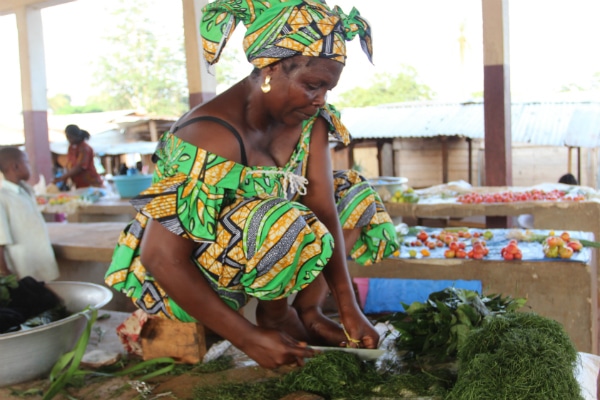
The CAR Interfaith Peacebuilding Partnership, run jointly by Christian and Muslim organisations and faith actors, lays the foundation of peace by strengthening the capacity of local institutions, while also providing livelihood support and improving social cohesion through Trauma Healing and Peace Education.
Orbis UK – DFID Trachoma SAFE Implementation Programme
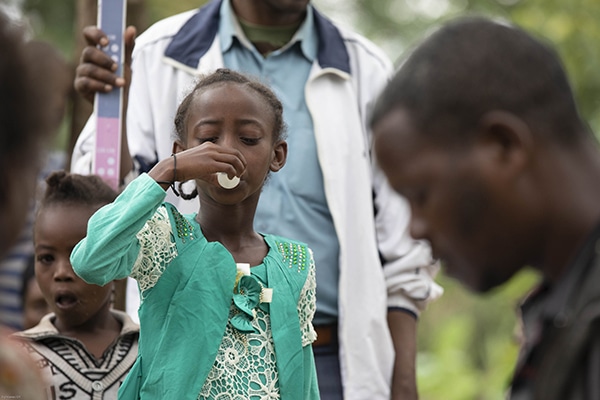
Blinding trachoma is a painful eye disease. Orbis coordinated and was one of six implementing partners of the DFID Trachoma SAFE Implementation Programme in Ethiopia – other partners included Sightsavers (grant manager) and the International Coalition for Trachoma Control (ICTC) – which seeks to eliminate trachoma as a public health problem.
Save the Children – Coaching for Life
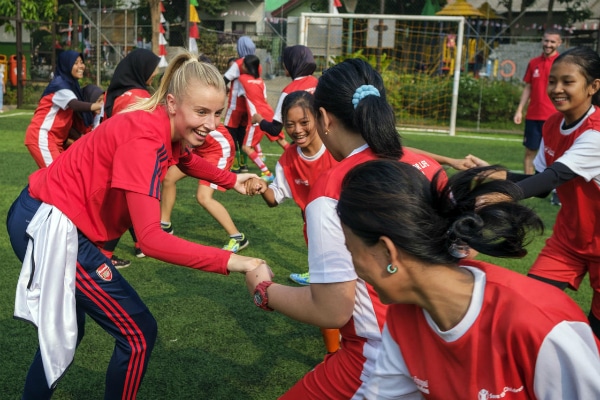
Save the Children and The Arsenal Foundation have combined their expertise to co-create Coaching for Life – an innovative programme building children’s resilience and improving their physical, mental and emotional wellbeing. The programme will address the urgent needs of children in the slums of Jakarta and Za’atari refugee camp.
Sightsavers – Accelerate Trachoma Elimination Programme
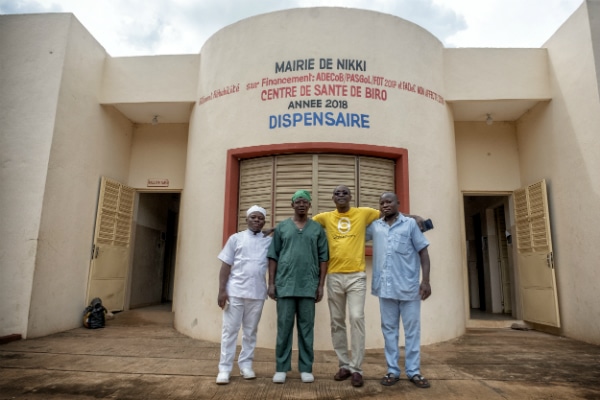
Trachoma has plagued humanity for thousands of years, even as far back as ancient Egypt. The Accelerate programme is a huge collaborative effort, working across 14 African countries to speed up the elimination of blinding trachoma and help consign the disease to the history books where it belongs.
TackleAfrica – Scaling HIV/Sexual and Reproductive Health Rights education through football coaching programmes
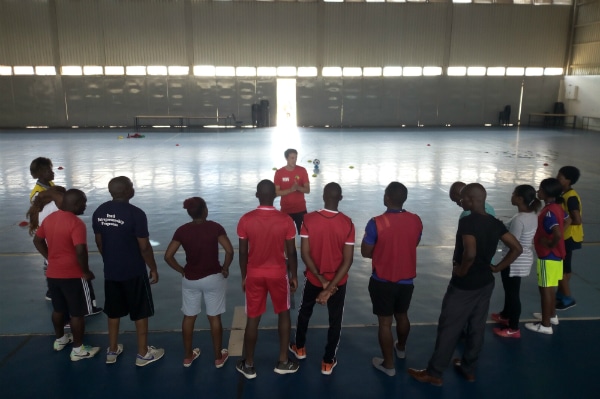
Building on a successful pilot, the project is continuing to scale up and embed TackleAfrica’s innovative HIV/SRHR education through football coaching methodology into VSO operations. The methodology is initially being used to engage prisoners in Zambia, Malawi and Zimbabwe and will then be expanded across VSO’s work globally.
Tdh UK (Terre des hommes) – Living Together
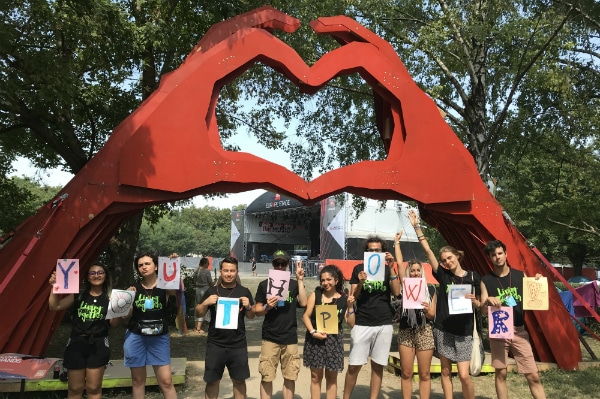
The Living Together initiative unites youth from different origins, backgrounds and cultures to change the discourse on migration in Europe. This initiative gives voice to youth from both host and migrant communities throughout Europe, empowering them as they explore challenges and opportunities of diversity and integration, promoting more inclusive societies.
Tdh UK (Terre des hommes) – Partnering with faith-based leaders to address child-protection and gender-based violence issues
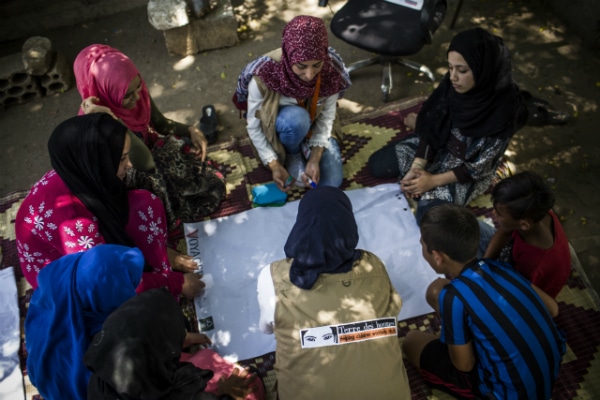
Tdh is collaborating with leaders from Muslim and Christian faith-based denominations and Druze, community-leaders, and the Lebanese government to address child-protection issues including gender-based violence and child marriage. The initiative is designed to promote social and behavioural change among Palestinian, Syrian, and Lebanese children and youth, and policy and decision-makers.
Tearfund – Shoulder to shoulder: Translating localisation rhetoric into reality in Nigeria
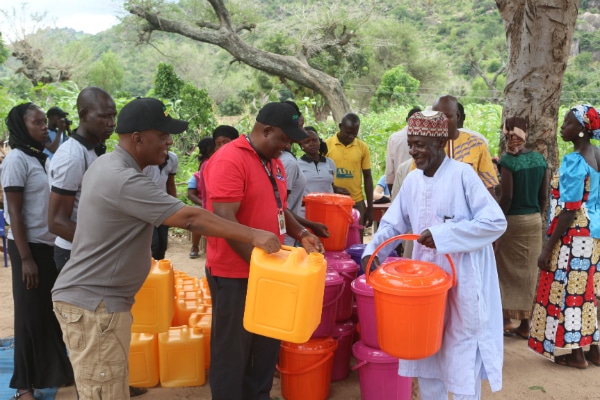
CRUDAN and Tearfund have worked in partnership since 1992 on long-term development initiatives in Nigeria. In 2015, they developed a new model of partnership to support CRUDAN to strengthen its humanitarian response capacity through long-term accompaniment and mentoring. The collaborative partnership was funded and supported by the Dutch Relief Alliance.
The Fred Hollows Foundation – The Cameroon Cataract Bond

The Cameroon Cataract Bond convenes public and private investors, donors, and eye care experts to provide a pay-for-performance loan (also known as a development impact bond or DIB) designed to address a critical shortage of comprehensive, high-quality and affordable eye care. This project is helping restore people’s sight in Cameroon.
Traidcraft Exchange – Juicing Justice for farmers
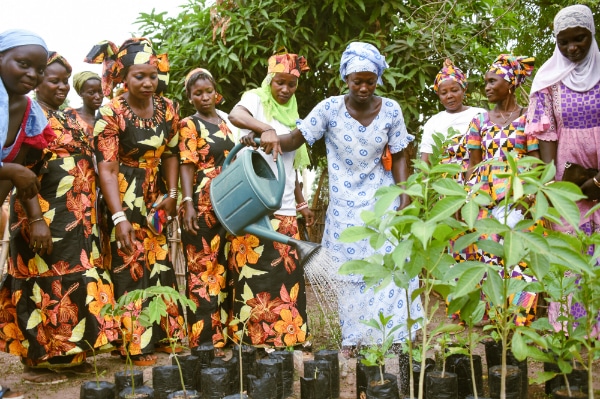
Through Juicing Justice, Traidcraft Exchange is developing transparent and fairer supply chains with small producers in Senegal’s Casamance region and with two local businesses who process exotic fruits into finished products, including juice. The work is increasing small producers’ incomes, promoting responsible business practices, and safeguarding forest resources.
Transaid – Professional Driver Training in Uganda
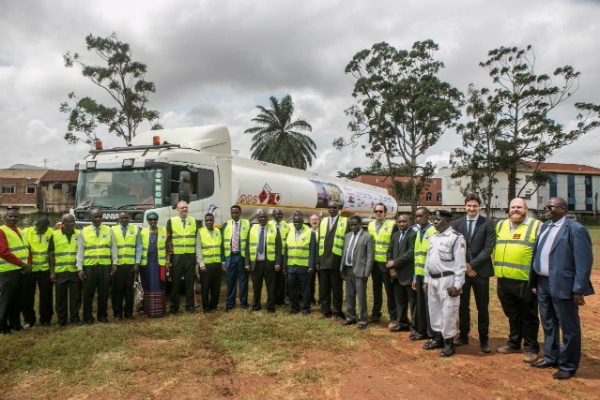
Since 2016, Transaid’s PDT-U project has trained 16 truck driver trainers to deliver training at a higher level than anywhere else in the region. These trainers are training drivers to these same high standards contributing to reducing the number of fatalities and serious injuries on Ugandan roads.
WaterAid – 20 Towns Ethiopia
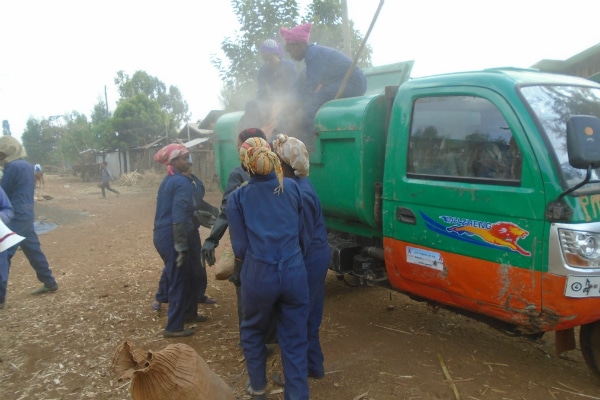
The Twenty Town project takes a holistic, sustained, systems building approach to capacity development. Trainings, coaching, manuals and where necessary equipment are delivered to enhance the capacity of the Ministry of Water Irrigation and Electricity in Ethiopia to effectively and sustainably manage urban water supply and sanitation services.
WaterAid – Transforming Healthcare Centres in Bangladesh

Supported by HSBC, this project focuses on improving the poor water, sanitation and hygiene (WASH) conditions of healthcare centres in some of the hardest to reach areas in Bangladesh, Tahirpur and Gangi, by working with key health sector actors, local communities and national level government and development stakeholders.
World Vision UK – Improving Gender Attitude Transition Education (IGATE)
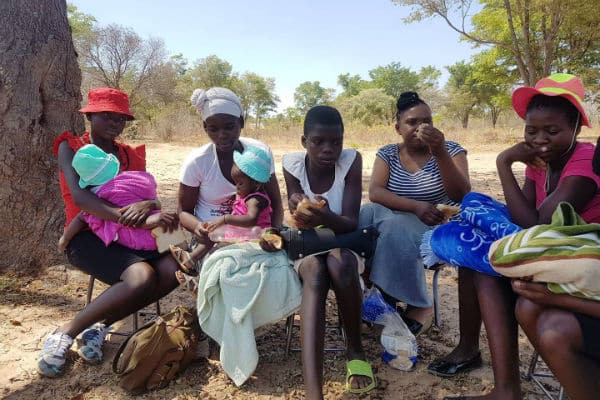
The IGATE project aims to equip 73,492 marginalised girls and boys in and out of school with foundational literacy, numeracy and life skills. Led by WVVUK, the IGATE consortium strives to achieve objectives of learning, transition and sustainability through whole school development, community-based education, leadership and community engagement.
Youth Business International – The Youth Entrepreneurship Programme in Latin America and the Caribbean
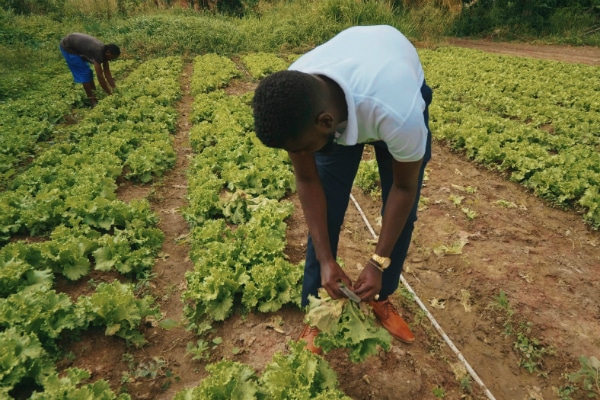
The programme aimed to tackle high youth unemployment and underemployment rates in Latin America and the Caribbean by working with a network of diverse partners to support low income youth in 10 countries to start, grow and sustain a business, generate new insight and build supportive ecosystems for youth entrepreneurship.

